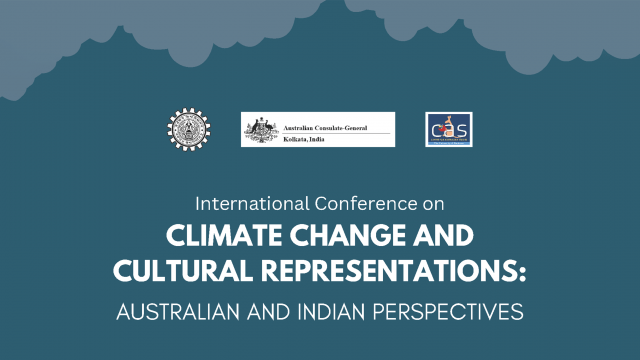Opinion: PM's false flag operation just might work

By Mark Kenny
A version of this article was originally published by The Canberra Times.
Scott Morrison played the ukulele on national TV a week ago, sparking a visceral reaction among people who would never vote for him anyway.
Even Dragon took umbrage - the band whose 1977 earworm April Sun in Cuba the Prime Minister had so good-naturedly butchered.
Fraud! Puff piece! Desperate! screamed the Twitterati.
Of course, the ukulele stunt was all three, but it was also pretty harmless in the scheme of things.
Fractionally less trivial was Jenny Morrison taking the burden from her husband on matters such as Grace Tame's refusal to enjoy a PM's photo-op (and all that her non-compliance implied) - and, of course, that family holiday in Hawaii.
Some voters will identify with the pressures on busy parents trying to arrange a summer holiday. Others, though, will have eyed the carefully calibrated prime-time piece's purpose of making an unpopular leader more relatable to voters (particularly women) while using his wife to launder a few negatives.
Presumably, Jenny M's 60 Minutes apologia was meant to convey the mundane suburban experience, even when transplanted to Kirribilli House.
Instead it reminded us that even at home, gross errors of prime ministerial judgment tend to be someone else's fault.
There have been plenty of other moments when this Prime Minister has struggled to connect, been slow to act, and revealed partisan instincts when unifying leadership was called for.
Some errors, however, matter more than others. As John Howard used to say, it helps to keep a sense of proportion. And the reason it helps is so voters can turn up the public pressure when required.
Morrison's frothing social media critics take note. Some have been shouting for so long they are hoarse.
So what umbrage should attach to branding Anthony Albanese as soft on China, the preferred candidate of Beijing, and even, as Morrison labelled Labor's deputy leader Richard Marles in one ill-tempered outburst, "another Manchurian candidate"?
This is one of those occasions when voter outrage should be turned up to 11.
Painting Labor as in thrall to Beijing is baseless, as ASIO Director-General Mike Burgess went to unusual lengths to stress. A predecessor, Dennis Richardson, concurred. Morrison and his super-punchy Defence Minister, Peter Dutton, know full well it is untrue.
Their moral and strategic abandon is breathtaking.
The party that claims the safe pair of hands on Australia's security is now actively eroding that security's bipartisan foundations, in a ploy so nakedly cynical it renders said party unfit for a fourth term.
The threat of Chinese espionage, economic coercion, strategic bullying and more need no airing here. Both sides in Australian politics oppose it. Both say the deep-freeze in the bilateral relationship is Beijing's doing.
Which is largely true, even if it does gloss over some ham-fisted government diplomacy.
Labor's oft-repeated oneness on national security - which now extends to backing enlarged ministerial discretion to deport criminals, and mandatory sentencing for firearms offences (bad law, surely?) - has frustrated the hell out of Morrison.
He's been trying the political equivalent of social distancing, while Albanese has been just as intent on standing shoulder to shoulder with him. Clearly this is doing the PM's head in.
A certain madness has set in, with Morrison now demanding that Beijing bow to his pressure and openly condemn Russian aggression on the Ukrainian border.
While a rebuke of Valdimir Putin by Xi Jinping would be welcomed by the world, it probably becomes less likely after Morrison's megaphone diplomacy. And given China is Australia's biggest trading partner, the most crucial single source of export earnings and the greatest military power in Australia's region, it is a strategy longer on national risk than reward.
Yet getting China to comply is hardly the point.
By banging the China drum, Morrison is speaking to directly to voters here. And we can expect more of this. Indeed, such is the enfeebled state of his premiership that he seems willing to say almost anything to cling to power.
The world is on edge awaiting the decision of the Russian autocrat: to invade or to pull back.
Where does China stand? Is President Xi egging Putin on, saying nothing, or perhaps urging restraint through quiet - which is to say orthodox - diplomatic channels?
Morrison is less interested in this question because it does not serve his re-election plans.
At any moment now, Putin may give the order and another terrible and bloody conflict will ensue.
Would that change the electoral mood for voters in May?
Ukraine is a long way from Australia, but Morrison's pre-emptive suggestion of Chinese imprimatur for Russian violence helps build the case that Beijing, too, supports military means in furthering its strategic goals.
Some analysts say Beijing wants the West preoccupied with central and eastern Europe, and that any war in Ukraine would provide the right opportunity for China to enact its long-cherished goal of reincorporating Taiwan.
Despite ASIO's corrective, Morrison was not stepping back on Friday, happily conflating Russia and China and mentioning Labor's luminaries of old, Paul Keating, Bob Carr, and Sam Dastyari.
"We've got Russian troops amassed on Ukraine's border. We've got coercion on Australia's interests here in our own region. We've got a rapidly escalating militarisation in our own region ... Labor just doesn't measure up to the mark of our government when it comes to national security," he said in Braitling, NT.
Reds under the bed? Kicking the communist can? It has worked before.
An anxious electorate might yet decide that ukuleles and crooked grant schemes, and even climate negligence, are second-order issues against a menacing military threat. Real or imagined.
Mark Kenny is a political analyst for The Canberra Times. He is a professor at the ANU Australian Studies Institute and host of the Democracy Sausage podcast.








